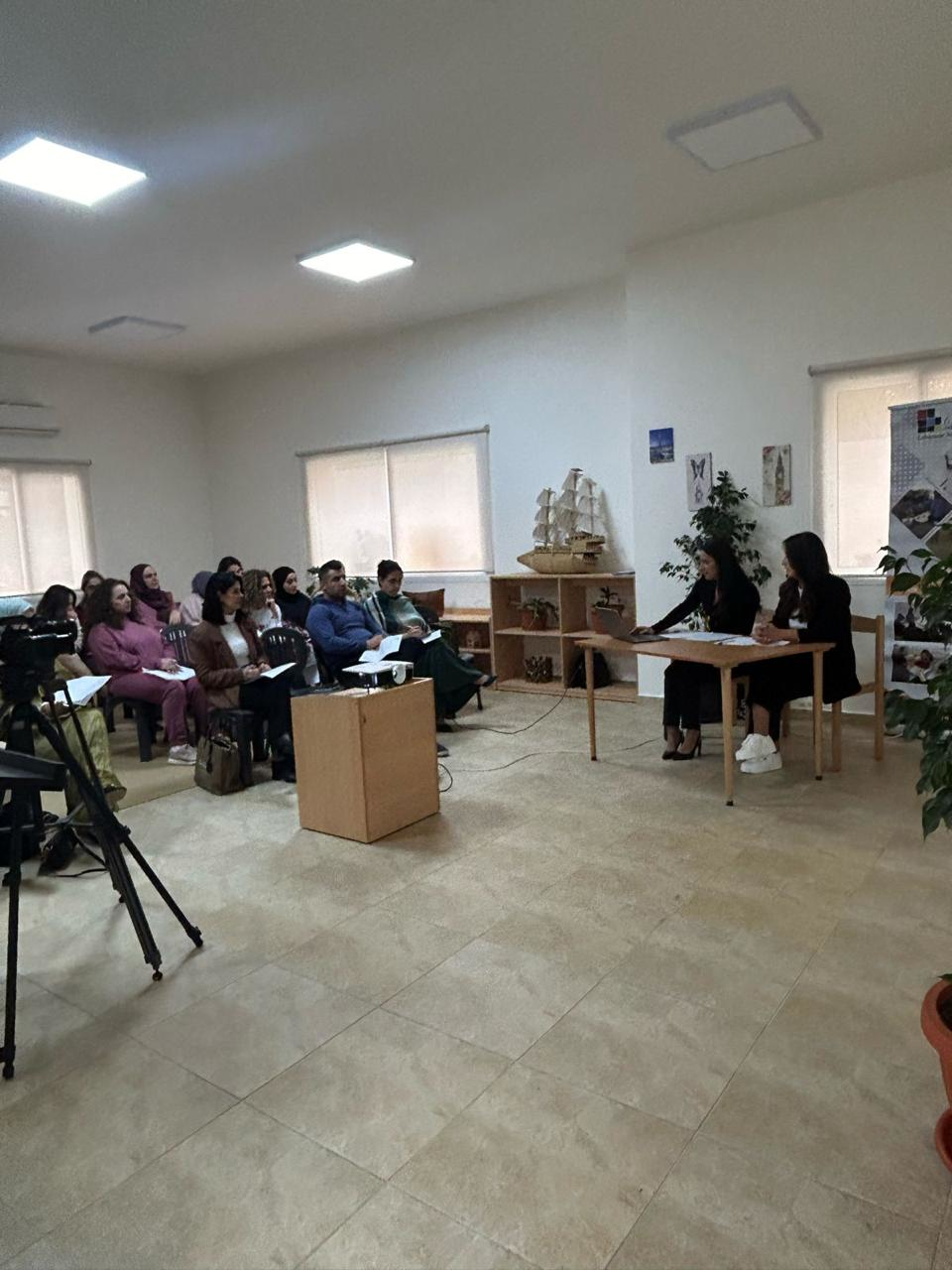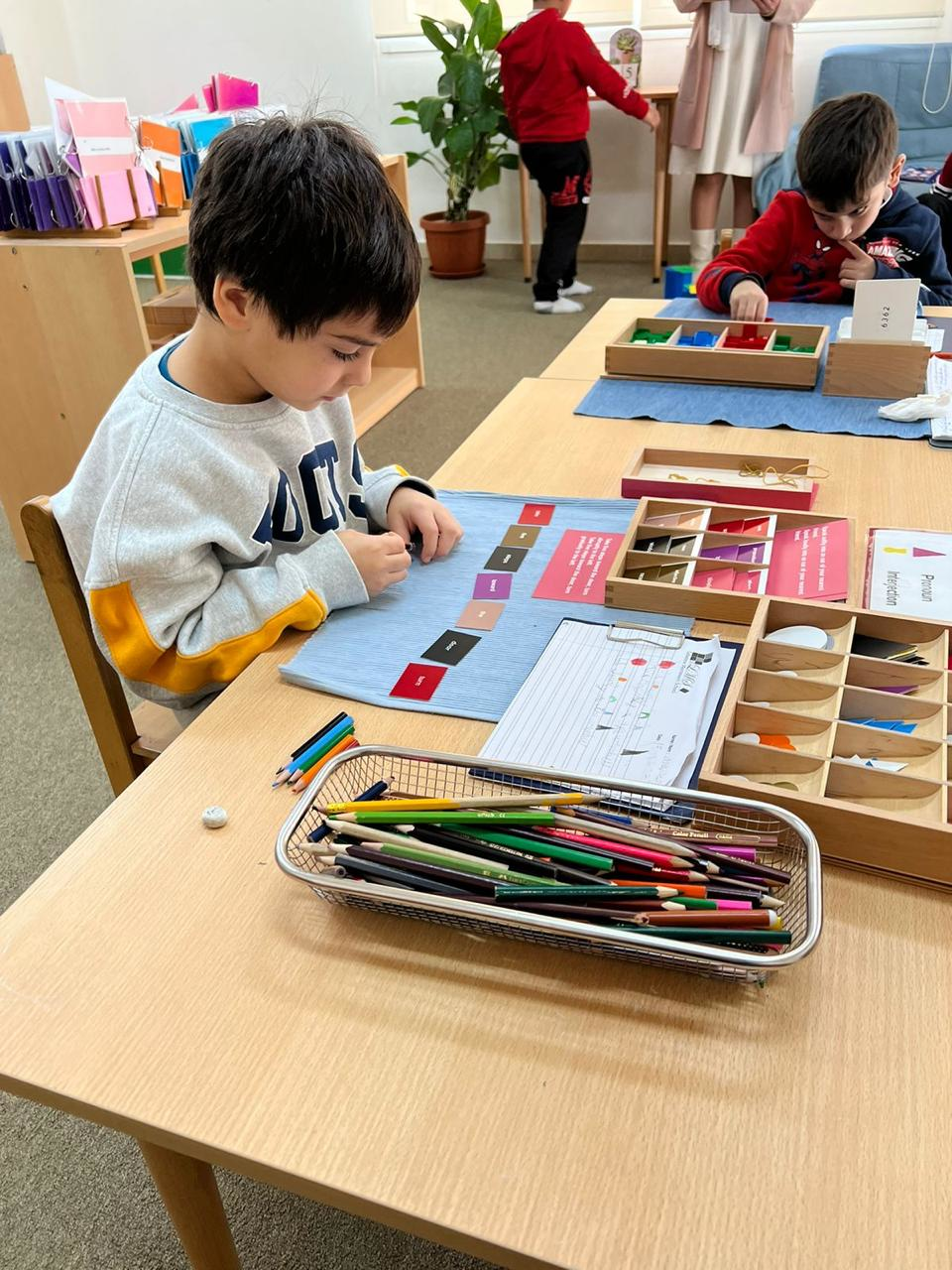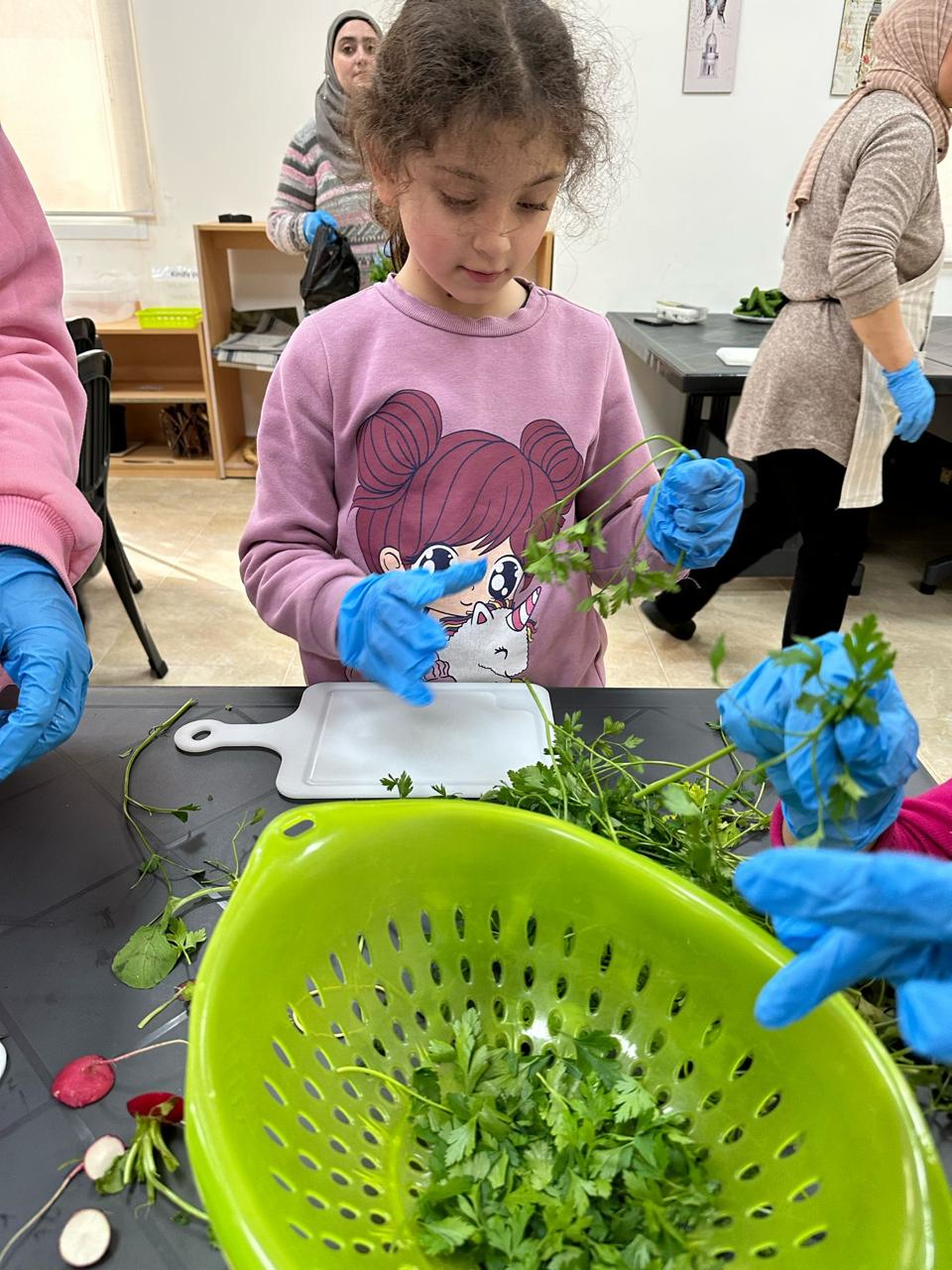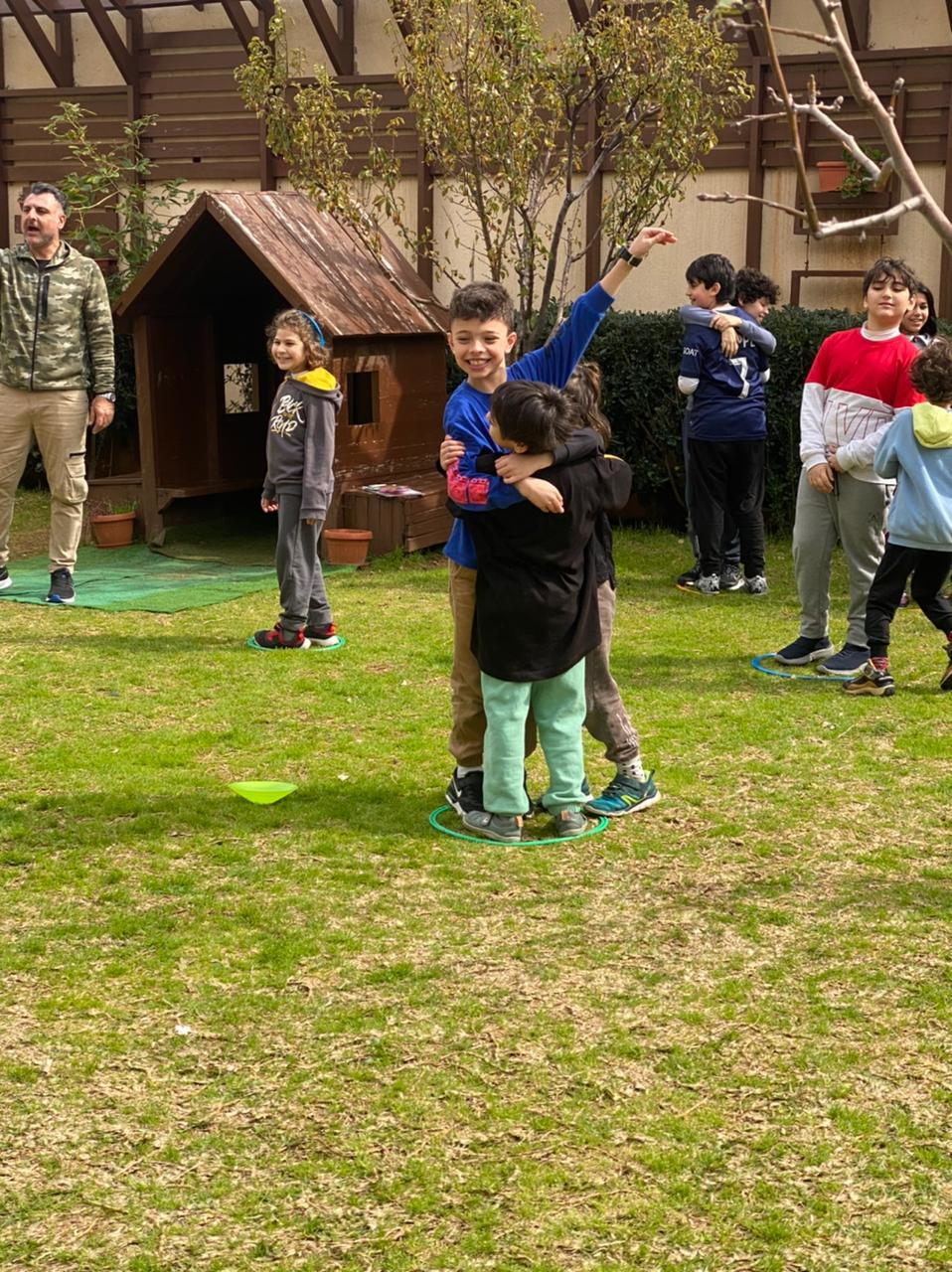
No social problem is as universal as the oppression of the child
-MARIA MONTESSORI-
SE Program

Elementary Program

Children`s House Program

middle school

Do not erase the designs the child makes in the soft wax of his inner life
Admission
Thank you for your interest in Lebanese Montessori School. Making decisions about a child’s education is one of the most important decisions we make as parents. During the admissions process, we aim to provide you with all the information you need to make the most informed decision possible.
Admission Process:

• Parent Visit – Book a tour with the admission office. Or attend an information session or open house held during the academic year.
• Observation: Visiting and observing one of our classrooms allows parents to see a classroom environment in action. Observations are scheduled through the admission office.
• Note: Only for Adults

• Application: Submit an application for your child and a non-refundable application fee . Application forms are available at the admission office and on our website.

• Request Records: Any applicant must submit a record from the previous school. Student records, recommendations or transcripts should be mailed or submitted to the admission office prior to scheduling the child visit.

• Child visit: A child visit is required for all applicants. Children house applicants spend one hour working on lessons with one of our Montessori guides to assess developmental readiness. Elementary program applicants spend one or two full school days with us, engaging in the Montessori environment.

Notification of Decision: Notification of Decision will be after three working days of the child visit.
Registration Fees: non-refundable and not included in the tuition fees for any new applicant. Parents sign a “Financial Enrolment Agreement Form”.
– FOR THE YEAR 2024/2025 REGISTRATION WILL BE OPEN TILL END OF SEPTEMBER
Admission Policy:
The Lebanese Montessori School is coeducational and accepts qualified students regardless of race, color, religion, or ethnic origin.
Admission decisions are based upon the space available and an evaluation of the suitability of each student.
Generally, priority consideration for enrollment is given to applicants in the following order:
- Qualified siblings of current LMS students.
- Qualified students with previous Montessori experience.
- All other qualified applicants.
Great care is taken to maintain a balance by gender, age, and learning differences and styles in each classroom.
This enrolment is effective only when the parents have signed an “Enrolment Agreement form” and all required documents have been submitted. The acknowledgement of payment does not constitute proof of acceptance.
Frequently Asked Questions
Q. How is a Montessori school different from a conventional school?
A Montessori school is different in some very fundamental ways:
– Children learn by doing: Since children receive information through their five senses via active engagement, each classroom is meticulously designed for optimal learning and contains developmentally appropriate materials, aesthetically pleasing arrangements and a structure that supports independence and nurtures each child’s natural curiosity. Through the use of Dr. Montessori’s scientifically-designed materials, the child achieves first perceptual and then cognitive understanding of concepts, building their competence and confidence.
– children learn at their pace: Montessorians recognize that learning is natural and innate, that children have natural desire (intrinsic motivation) to know about their world. Our classrooms are designed to promote engaged exploration and discovery. Students joyfully learn at their own pace, making choices that are right for them, with the support and guidance of their teachers. Because students are curious and excited about what they’re learning, they build a strong foundation of concentration, inner discipline and joy of learning.
– Children see the connections: Due to our fully integrated curriculum, students see how our various curriculum areas are connected, leading to greater understanding of how our complex world works. They learn about why we count not just what or how we count. The spiraling nature of the Montessori curriculum, with each experience building toward successively complex experiences, scaffolds learning for the child. As an active participant in one’s education, with the teacher as a guide, each child becomes the builder of meaningful knowledge helping one learn how to learn.
– Children collaborate: Our multi-age classrooms support collaborative learning, where children not only learn from the teachers but also learn from each other. The students hone their cooperation and negotiation skills when working through choices with work partners, recognizing the strength of working together toward a common goal.
– Children are responsible: Autonomy and freedom are balanced with responsibility, preparing students to follow their passions, yet understand how their actions impact the larger community. Students develop empathy, cooperation and personal responsibility within the context of being an actively engaged member of the community.
– Children are peaceful: From the youngest to the oldest child, our students learn to interact with others with respect, compassion and kindness. Awareness that every living thing has a meaningful role in the larger system leads children to define for themselves how they will contribute toward creating a more peaceful world.
Q. What are the origins of the Montessori philosophy of education?
Montessori education has a rich and long history. Founded by Italy’s first female physician, Dr. Maria Montessori devoted her life to understanding human development/universal needs, with a keen interest in how children learn. After years of scientific research, she founded a philosophy of education that is over 100 years old, with schools all over the world. Modern science is validating what Dr. Montessori knew intuitively, that children learn through their senses, that children have an innate natural desire to explore the world around them and that a properly prepared environment is critical for optimal learning and the development of independence and autonomy.
Q. How are your teachers trained?
As we all know; the teachers make all the difference at a school. At our Montessori school, all of our lead guides (our teachers are called ‘guides’) have earned Montessori certifications for their particular level. The teachers join our school with an in-depth understanding of child development and Montessori philosophy, as well as mastery of a comprehensive, fully-integrated Montessori curriculum.
Q. How are assessments handled at your school?
Assessments are an integral part of a Montessori setting and are viewed as a means to support learning and development. In a Montessori school, assessment is an on-going continuous process that manifests in several ways:
– Teacher Observations: Dr. Montessori knew that observation was key to being able to serve the child. Our teachers are meticulous in observing each child’s behavior and keeping detailed assessments of each student’s progress. The information gleaned from these observations guide the teacher in preparing and presenting lessons, knowing when to move to the next concept in the sequence or when a child needs additional reinforcement on a current concept. Depending on the age of the child, teachers guide the students in self-assessment through regularly scheduled teacher/student conferences, use of work portfolios and projects which culminate in presentations, dioramas.
– Parent/student conferences: conferences are held 3 times a year, the first and last are preceded by comprehensive written progress reports. Conferences are an opportunity for mutual sharing between the parents and the guides, with the guides providing parents with detailed information about their child’s progress in all developmental areas.
– Achievement Test: Student take achievement tests in the 3rd and 6th grades. The assessments provide a snapshot of a child’s performance in languages, reading and math for 3rd grade and in languages, reading, sciences, history, geography and math for 6th grade. The test data, combined with the teacher’s comprehensive records and knowledge of the student, provide a full perspective about a child’s academic strengths, areas of challenge and areas of continued learning and development.
Q. How can children learn if they're free to do whatever they want?
Dr. Montessori observed that children are more motivated to learn when working on something of their own choosing. A Montessori student may choose his focus of learning on any given day, but his decision is limited by the materials and activities – in each area of the curriculum that his teacher has prepared and presented to him. Becoming at the elementary level, students typically set learning goals and create personal work plans under their teacher’s guidance.
Q. If children work at their own pace, don't they fall behind?
Although students are free to work at their own pace, they’re not doing it alone. The Montessori teacher closely observes each child and provides materials and activities that advance his learning by building on skills and knowledge already gained. This gentle guidance helps him master the challenge at hand – and protects him from moving on before he’s ready which is what actually causes children to “fall behind”.
Q. Can Montessori accommodate gifted children? What about children with other special learning needs?
An advantage of the Montessori approach, including multi-age classrooms with students of varying abilities and interests – is that it allows each child to work at her own pace. Students whose strengths and interests propel them to higher levels of learning can find intellectual challenge without being separated from their peers. The same is true for students who may need extra guidance and support: each can progress through the curriculum at his own comfortable pace, without feeling pressure to “catch up”. We might note that from a Montessori perspective, every child is considered gifted, each in her own way. For every child has his own unique strengths – it is all a matter of degree.
Q. Why do Montessori use the term "work" to describe children's activity?
Dr. Montessori’s deep respect for children is reflected in the language she used to describe their exploration and discovery. She recognized that the students were in a process of self-construction, continuously building themselves from within. The various lessons, materials and way of being in community “work” support each child’s natural development.
NB*: If you have additional questions, or prefer to speak with someone directly, please visit our contact us page. We are always happy to help!
